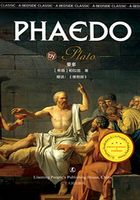"I never saw you wear a ring before, Edward," she cried. "Is that Fanny's hair? I remember her promising to give you some. But I should have thought her hair had been darker."
Marianne spoke inconsiderately what she really felt; but when she saw how much she had pained Edward, her own vexation at her want of thought could not be surpassed by his. He coloured very deeply, and giving a momentary glance at Elinor, replied, "Yes, it is my sister's hair. The setting always casts a different shade on it you know."
Elinor had met his eye, and looked conscious likewise. That the hair was her own, she instantaneously felt as well satisfied as Marianne; the only difference in their conclusions was that what Marianne considered as a free gift from her sister, Elinor was conscious must have been procured by some theft or contrivance unknown to herself. She was not in a humour, however, to regard it as an affront, and affecting to take no notice of what passed, by instantly talking of something else, she internally resolved henceforward to catch every opportunity of eyeing the hair and of satisfying herself, beyond all doubt, that it was exactly the shade of her own.
Edward's embarrassment lasted some time, and it ended in an absence of mind still more settled. He was particularly grave the whole morning. Marianne severely censured herself for what she had said; but her own forgiveness might have been more speedy had she known how little offence it had given her sister.
Before the middle of the day, they were visited by Sir John and Mrs. Jennings, who, having heard of the arrival of a gentleman at the cottage, came to take a survey of the guest. With the assistance of his mother-in-law, Sir John was not long in discovering that the name of Ferrars began with an F and this prepared a future mine of raillery against the devoted Elinor, which nothing but the newness of their acquaintance with Edward could have prevented from being immediately sprung. But, as it was, she only learned from some very significant looks how far their penetration, founded on Margaret's instructions, extended.
Sir John never came to the Dashwoods without either inviting them to dine at the park the next day or to drink tea with them that evening. On the present occasion, for the better entertainment of their visitor, towards whose amusement he felt himself bound to contribute, he wished to engage them for both.
"You must drink tea with us to-night,"said he,"for we shall be quite alone; and to-morrow you must absolutely dine with us, for we shall be a large party."
Mrs. Jennings enforced the necessity. "And who knows but you may raise a dance,"said she."And that will tempt you,Miss Marianne."
"A dance!" cried Marianne. "Impossible! Who is to dance?"
"Who? Why yourselves and the Careys and Whitakers to be sure.What! You thought nobody could dance because a certain person that shall be nameless is gone!"
"I wish with all my soul," cried Sir John, "that Willoughby were among us again."
This, and Marianne's blushing, gave new suspicions to Edward."And who is Willoughby?" said he in a low voice to Miss Dashwood, by whom he was sitting.
She gave him a brief reply. Marianne's countenance was more communicative. Edward saw enough to comprehend not only the meaning of others but such of Marianne's expressions as had puzzled him before; and when their visitors left them, he went immediately round her and said in a whisper, "I have been guessing. Shall I tell you my guess?"
"What do you mean?"
"Shall I tell you?"
"Certainly."
"Well then, I guess that Mr. Willoughby hunts."
Marianne was surprised and confused, yet she could not help smiling at the quiet archness of his manner, and after a moment's silence said,
"Oh! Edward! How can you? But the time will come I hope... I am sure you will like him."
"I do not doubt it," replied he, rather astonished at her earnestness and warmth; for had he not imagined it to be a joke for the good of her acquaintance in general, founded only on a something or a nothing between Mr. Willoughby and herself, he would not have ventured to mention it.
Chapter 19
EDWARD REMAINED A week at the cottage; he was earnestly pressed by Mrs. Dashwood to stay longer; but as if he were bent only on self-mortification, he seemed resolved to be gone when his enjoyment among his friends was at the height. His spirits during the last two or three days, though still very unequal, were greatly improved; he grew more and more partial to the house and environs, never spoke of going away without a sigh, declared his time to be wholly disengaged, even doubted to what place he should go when he left them; but still, go he must. Never had any week passed so quickly. He could hardly believe it to be gone. He said so repeatedly; other things he said too which marked the turn of his feelings and gave the lie to his actions. He had no pleasure at Norland; he detested being in town; but either to Norland or London he must go. He valued their kindness beyond anything, and his greatest happiness was in being with them. Yet he must leave them at the end of a week, in spite of their wishes and his own, and without any restraint on his time.
Elinor placed all that was astonishing in this way of acting to his mother's account; and it was happy for her that he had a mother whose character was so imperfectly known to her as to be the general excuse for everything strange on the part of her son. Disappointed, however, and vexed as she was, and sometimes displeased with his uncertain behaviour to herself, she was very well disposed on the whole to regard his actions with all the candid allowances and generous qualifications which had been rather more painfully extorted from her for Willoughby's service by her mother. His want of spirits, of openness, and of consistency, were most usually attributed to his want of independence and his better knowledge of Mrs. Ferrars's dispositions and designs. The shortness of his visit, the steadiness of his purpose in leaving them, originated in the same fettered inclination, the same inevitable necessity of temporizing with his mother. The old well-established grievance of duty against will, parent against child, was the cause of all. She would have been glad to know when these difficulties were to cease, this opposition was to yield;when Mrs. Ferrars would be reformed, and her son be at liberty to be happy. But from such vain wishes, she was forced to turn for comfort to the renewal of her confidence in Edward's affection, to the remembrance of every mark of regard in look or word which fell from him while at Barton, and above all to that flattering proof of it which he constantly wore round his finger.
"I think, Edward," said Mrs. Dashwood as they were at breakfast the last morning, "you would be a happier man if you had any profession to engage your time and give an interest to your plans and actions. Some inconvenience to your friends, indeed, might result from it —you would not be able to give them so much of your time. But (with a smile) you would be materially benefited in one particular at least— you would know where to go when you left them."
"I do assure you," he replied, "that I have long thought on this point, as you think now. It has been and is and probably will always be a heavy misfortune to me that I have had no necessary business to engage me, no profession to give me employment, or afford me anything like independence. But unfortunately my own nicety and the nicety of my friends have made me what I am, an idle, helpless being. We never could agree in our choice of a profession. I always preferred the church, as I still do. But that was not smart enough for my family. They recommended the army. That was a great deal too smart for me. The law was allowed to be genteel enough; many young men who had chambers in the Temple made a very good appearance in the first circles and drove about town in very knowing gigs. But I had no inclination for the law, even in this less abstruse study of it which my family approved. As for the navy, it had fashion on its side, but I was too old when the subject was first started to enter it; and at length, as there was no necessity for my having any profession at all, as I might be as dashing and expensive without a red coat on my back as with one, idleness was pronounced on the whole to be the most advantageous and honourable, and a young man of eighteen is not in general so earnestly bent on being busy as to resist the solicitations of his friends to do nothing. I was therefore entered at Oxford and have been properly idle ever since."
"The consequence of which, I suppose, will be," said Mrs. Dashwood, "since leisure has not promoted your own happiness, that your sons will be brought up to as many pursuits, employments, professions, and trades as Columella's."
"They will be brought up," said he in a serious accent, "to be as unlike myself as is possible. In feeling, in action, in condition, in everything."
"Come, come; this is all an effusion of immediate want of spirits, Edward. You are in a melancholy humour and fancy that anyone unlike yourself must be happy. But remember that the pain of parting from friends will be felt by everybody at times, whatever be their education or state. Know your own happiness. You want nothing but patience; or give it a more fascinating name, call it hope. Your mother will secure to you, in time, that independence you are so anxious for; it is her duty, and it will, it must ere long, become her happiness to prevent your whole youth from being wasted in discontent. How much may not a few months do?"
"I think," replied Edward, "that I may defy many months to produce any good to me. "
This desponding turn of mind, though it could not be communicated to Mrs. Dashwood, gave additional pain to them all in the parting which shortly took place and left an uncomfortable impression on Elinor's feelings especially, which required some trouble and time to subdue. But as it was her determination to subdue it, and to prevent herself from appearing to suffer more than what all her family suffered on his going away, she did not adopt the method so judiciously employed by Marianne on a similar occasion to augment and fix her sorrow by seeking silence, solitude, and idleness. Their means were as different as their objects and equally suited to the advancement of each.
Elinor sat down to her drawing-table as soon as he was out of the house, busily employed herself the whole day, neither sought nor avoided the mention of his name, appeared to interest herself almost as much as ever in the general concerns of the family; and if by this conduct she did not lessen her own grief, it was at least prevented from unnecessary increase, and her mother and sisters were spared much solicitude on her account.
Such behaviour as this, so exactly the reverse of her own, appeared no more meritorious to Marianne than her own had seemed faulty to her. The business of self-command she settled very easily— with strong affections it was impossible; with calm ones it could have no merit. That her sister's affections were calm,she dared not deny,though she blushed to acknowledge it; and of the strength of her own, she gave a very striking proof by still loving and respecting that sister in spite of this mortifying conviction.
Without shutting herself up from her family, or leaving the house in determined solitude to avoid them, or lying awake the whole night to indulge meditation, Elinor found every day afforded her leisure enough to think of Edward and of Edward's behaviour in every possible variety which the different state of her spirits at different times could produce—with tenderness, pity, approbation, censure, and doubt. There were moments in abundance when, if not by the absence of her mother and sisters, at least by the nature of their employments, conversation was forbidden among them, and every effect of solitude was produced. Her mind was inevitably at liberty; her thoughts could not be chained elsewhere; and the past and the future, on a subject so interesting, must be before her, must force her attention, and engross her memory, her reflection, and her fancy.
From a reverie of this kind, as she sat at her drawingtable, she was roused one morning soon after Edward's leaving them by the arrival of company. She happened to be quite alone. The closing of the little gate at the entrance of the green court in front of the house drew her eyes to the window, and she saw a large party walking up to the door. Amongst them were Sir John and Lady Middleton and Mrs. Jennings, but there were two others, a gentleman and lady who were quite unknown to her. She was sitting near the window, and as soon as Sir John perceived her, he left the rest of the party to the ceremony of knocking at the door, and stepping across the turf, obliged her to open the casement to speak to him, though the space was so short between the door and the window as to make it hardly possible to speak at one without being heard at the other.
"Well," said he, "we have brought you some strangers. How do you like them?"
"Hush! They will hear you."
"Never mind if they do. It is only the Palmers. Charlotte is very pretty, I can tell you. You may see her if you look this way."
As Elinor was certain of seeing her in a couple of minutes without taking that liberty, she begged to be excused.
"Where is Marianne? Has she run away because we are come? I see her instrument is open."
"She is walking, I believe."
They were now joined by Mrs. Jennings, who had not patience enough to wait till the door was opened before she told her story.She came hallooing to the window, "How do you do, my dear? How does Mrs. Dashwood do? And where are your sisters? What! All alone! You will be glad of a little company to sit with you. I have brought my other son and daughter to see you. Only think of their coming so suddenly! I thought I heard a carriage last night while we were drinking our tea, but it never entered my head that it could be them. I thought of nothing but whether it might not be Colonel Brandon come back again; so I said to Sir John, I do think I hear a carriage; perhaps it is Colonel Brandon come back again— "
Elinor was obliged to turn from her in the middle of her story to receive the rest of the party; Lady Middleton introduced the two strangers; Mrs. Dashwood and Margaret came downstairs at the same time, and they all sat down to look at one another while Mrs. Jennings continued her story as she walked through the passage into the parlour attended by Sir John.
Mrs. Palmer was several years younger than Lady Middleton and totally unlike her in every respect. She was short and plump, had a very pretty face, and the finest expression of good humour in it that could possibly be. Her manners were by no means so elegant as her sister's, but they were much more prepossessing. She came in with a smile, smiled all the time of her visit except when she laughed, and smiled when she went away. Her husband was a grave-looking young man of five or six and twenty, with an air of more fashion and sense than his wife but of less willingness to please or be pleased. He entered the room with a look of self-consequence, slightly bowed to the ladies without speaking a word, and after briefly surveying them and their apartments,took up a newspaper from the table and continued to read it as long as he stayed.
Mrs. Palmer, on the contrary, who was strongly endowed by nature with a turn for being uniformly civil and happy, was hardly seated before her admiration of the parlour and everything in it burst forth.
"Well! What a delightful room this is! I never saw anything so charming! Only think, Mama, how it is improved since I was here last! I always thought it such a sweet place, ma'am! (Turning to Mrs. Dashwood.) But you have made it so charming! Only look, Sister, how delightful everything is! How I should like such a house for myself! Should not you, Mr. Palmer?"
Mr. Palmer made her no answer and did not even raise his eyes from the newspaper.
"Mr. Palmer does not hear me," said she, laughing; "he never does sometimes. It is so ridiculous!"
This was quite a new idea to Mrs.Dashwood; she had never been used to find wit in the inattention of anyone, and could not help looking with surprise at them both.
Mrs. Jennings, in the meantime, talked on as loud as she could and continued her account of their surprise the evening before on seeing their friends, without ceasing till everything was told. Mrs. Palmer laughed heartily at the recollection of their astonishment, and everybody agreed, two or three times over, that it had been quite an agreeable surprise.
"You may believe how glad we all were to see them," added Mrs. Jennings, leaning forwards towards Elinor and speaking in a low voice as if she meant to be heard by no one else, though they were seated on different sides of the room; "but, however, I can't help wishing they had not travelled quite so fast, nor made such a long journey of it, for they came all round by London upon account of some business, for you know (nodding significantly and pointing to her daughter) it was wrong in her situation. I wanted her to stay at home and rest this morning, but she would come with us; she longed so much to see you all!"
Mrs. Palmer laughed and said it would not do her any harm.
"She expects to be confined in February," continued Mrs. Jennings.
Lady Middleton could no longer endure such a conversation, and therefore exerted herself to ask Mr. Palmer if there was any news in the paper.
"No, none at all," he replied, and read on.
"Here comes Marianne," cried Sir John. "Now, Palmer, you shall see a monstrous pretty girl."
He immediately went into the passage, opened the front door, and ushered her in himself. Mrs. Jennings asked her as soon as she appeared if she had not been to Allenham; and Mrs. Palmer laughed so heartily at the question, as to show she understood it. Mr. Palmer looked up on her entering the room, stared at her some minutes, and then returned to his newspaper. Mrs. Palmer's eye was now caught by the drawings which hung round the room. She got up to examine them.
"Oh! dear, how beautiful these are! Well! How delightful! Do but look, Mama, how sweet! I declare they are quite charming; I could look at them forever." And then sitting down again, she very soon forgot that there were any such things in the room.
When Lady Middleton rose to go away, Mr. Palmer rose also, laid down the newspaper, stretched himself, and looked at them all round.
"My love, have you been asleep?" said his wife, laughing.
He made her no answer; and only observed after again examining the room, that it was very low pitched and that the ceiling was crooked. He then made his bow and departed with the rest.
Sir John had been very urgent with them all to spend the next day at the park. Mrs. Dashwood, who did not choose to dine with them oftener than they dined at the cottage, absolutely refused on her own account;her daughters might do as they pleased. But they had no curiosity to see how Mr. and Mrs. Palmer ate their dinner, and no expectation of pleasure from them in any other way. They attempted, therefore, likewise to excuse themselves; the weather was uncertain and not likely to be good. But Sir John would not be satisfied; the carriage should be sent for them and they must come. Lady Middleton too, though she did not press their mother, pressed them. Mrs. Jennings and Mrs. Palmer joined their entreaties; all seemed equally anxious to avoid a family party; and the young ladies were obliged to yield.
"Why should they ask us?" said Marianne as soon as they were gone. "The rent of this cottage is said to be low; but we have it on very hard terms if we are to dine at the park whenever anyone is staying either with them or with us."
"They mean no less to be civil and kind to us now," said Elinor, "by these frequent invitations than by those which we received from them a few weeks ago. The alteration is not in them if their parties are grown tedious and dull. We must look for the change elsewhere."
Chapter 20
AS THE MISS Dashwoods entered the drawing-room of the park the next day at one door, Mrs. Palmer came running in at the other, looking as good-humoured and merry as before. She took them all most affectionately by the hand and expressed great delight in seeing them again.
"I am so glad to see you!" said she, seating herself between Elinor and Marianne, "for it is so bad a day I was afraid you might not come, which would be a shocking thing, as we go away again to-morrow. We must go, for the Westons come to us next week you know. It was quite a sudden thing our coming at all, and I knew nothing of it till the carriage was coming to the door, and then Mr. Palmer asked me if I would go with him to Barton. He is so droll! He never tells me anything! I am so sorry we cannot stay longer; however we shall meet again in town very soon, I hope."
They were obliged to put an end to such an expectation.
"Not go to town!" cried Mrs. Palmer with a laugh, "I shall be quite disappointed if you do not. I could get the nicest house in the world for you next door to ours in Hanover Square. You must come, indeed. I am sure I shall be very happy to chaperon you at any time till I am confined if Mrs. Dashwood should not like to go into public."
They thanked her, but were obliged to resist all her entreaties.
"Oh! my love," cried Mrs. Palmer to her husband, who just then entered the room; "you must help me persuade the Miss Dashwoods to go to town this winter."
Her love made no answer; and after slightly bowing to the ladies, began complaining of the weather.
"How horrid all this is!" said he. "Such weather makes everything and everybody disgusting. Dullness is as much produced within doors as without by rain. It makes one detest all one's acquaintance. What the devil does Sir John mean by not having a billiard room in his house? How few people know what comfort is! Sir John is as stupid as the weather."
The rest of the company soon dropped in.
"I am afraid, Miss Marianne," said Sir John, "you have not been able to take your usual walk to Allenham to-day."
Marianne looked very grave and said nothing.
"Oh! don't be so sly before us," said Mrs. Palmer; "for we know all about it, I assure you; and I admire your taste very much, for I think he is extremely handsome. We do not live a great way from him in the country, you know. Not above ten miles, I dare say."
"Much nearer thirty," said her husband.
"Ah! well! There is not much difference. I never was at his house, but they say it is a sweet pretty place."
"As vile a spot as I ever saw in my life," said Mr. Palmer.
Marianne remained perfectly silent, though her countenance betrayed her interest in what was said.















